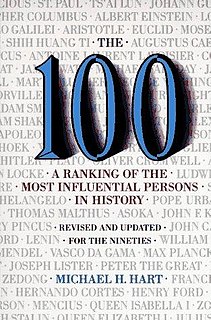 W
WThe 100: A Ranking of the Most Influential Persons in History is a 1978 book by Michael H. Hart, an astrophysicist, alien life researcher and white separatist. It was the first book of Hart, which was reprinted in 1992 with revisions. It is a ranking of the 100 people who, according to Hart, most influenced human history.
 W
WApropos of Nothing is a 2020 memoir by American filmmaker and humorist Woody Allen. The book was originally due to be published by Grand Central Publishing, an imprint of Hachette Book Group, in April 2020, but on March 6, 2020 Hachette said they would no longer publish it. The memoir was published, in English, by Arcade Publishing and, in Italian, by La nave di Teseo on March 23, 2020. The photo of Allen on the back cover photo was taken by his longtime friend and frequent co-star Diane Keaton.
 W
WAn Area of Darkness is a book written by V. S. Naipaul in 1964. It is a travelogue detailing Naipaul's trip through India in the early sixties. It was the first of Naipaul's acclaimed Indian trilogy that includes India: A Wounded Civilization (1977) and India: A Million Mutinies Now (1980). The narration is anecdotal and descriptive.
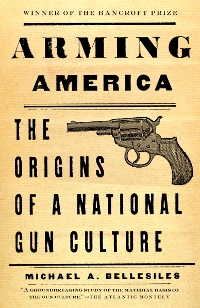 W
WArming America: The Origins of a National Gun Culture is a discredited 2000 book by historian Michael A. Bellesiles about American gun culture, an expansion of a 1996 article he published in the Journal of American History. Bellesiles, then a professor at Emory University, used fabricated research to argue that during the early period of US history, guns were uncommon during peacetime and that a culture of gun ownership did not arise until the mid-nineteenth century.
 W
WThe Bastard of Istanbul is a 2006 novel by Turkish bestselling author Elif Shafak, written originally in English and published by Viking Adult. It was translated by Aslı Biçen into her native language Turkish under the title Baba ve Piç in March 2006, and became a bestseller.
 W
WThe Brothers Lionheart is a children's fantasy novel written by Astrid Lindgren. Well established as one of the most widely read and beloved books for children in Sweden, it was originally published in the autumn of 1973 and has since been translated into 46 languages. Like several of Lindgren's works, the book has a melancholy tone, and many of its themes are unusually dark for the children's book genre. Disease, death, tyranny, betrayal, and rebellion form the backdrop of the story, against which are contrasted platonic love, loyalty, sacrifice, hope, courage, and pacifism.
 W
WThe Chronicles of Narnia is a series of fantasy novels by British author C. S. Lewis. Written by Lewis, illustrated by Pauline Baynes, and originally published in London between 1950 and 1956, The Chronicles of Narnia has been adapted for radio, television, the stage, film, and computer games. The series is set in the fictional realm of Narnia, a fantasy world of magic, mythical beasts, and talking animals. It narrates the adventures of various children who play central roles in the unfolding history of the Narnian world. Except in The Horse and His Boy, the protagonists are all children from the real world who are magically transported to Narnia, where they are sometimes called upon by the lion Aslan to protect Narnia from evil. The books span the entire history of Narnia, from its creation in The Magician's Nephew to its eventual destruction in The Last Battle.
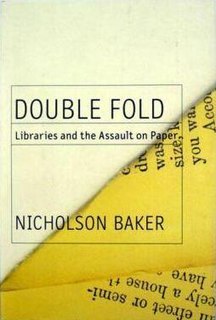 W
WDouble Fold: Libraries and the Assault on Paper is a non-fiction book by Nicholson Baker that was published in April 2001. An excerpt appeared in the July 24, 2000 issue of The New Yorker, under the title "Deadline: The Author's Desperate Bid to Save America's Past." This exhaustively researched work details Baker's quest to uncover the fate of thousands of books and newspapers that were replaced and often destroyed during the microfilming boom of the 1980s and 1990s. Double Fold is a controversial work and is not meant to be objective. In the preface, Baker says, "This isn't an impartial piece of reporting", and The New York Times characterized the book as a "blistering and thoroughly idiosyncratic attack".
 W
WThe Frankenstein authorship question refers to the historical uncertainty that exists around Percy Bysshe Shelley's contributions to Frankenstein; or, The Modern Prometheus, a novel attributed to Shelley's wife, Mary Shelley.
 W
WHis Dark Materials is a trilogy of fantasy novels by Philip Pullman consisting of Northern Lights, The Subtle Knife (1997), and The Amber Spyglass (2000). It follows the coming of age of two children, Lyra Belacqua and Will Parry, as they wander through a series of parallel universes. The novels have won a number of awards, including the Carnegie Medal in 1995 for Northern Lights and the 2001 Whitbread Book of the Year for The Amber Spyglass. In 2003, the trilogy was ranked third on the BBC's The Big Read poll.
 W
WIrreversible Damage: The Transgender Craze Seducing Our Daughters is a 2020 book by Abigail Shrier, by Regnery Publishing. The book endorses the contentious theory of rapid onset gender dysphoria. Shrier states that there was a "sudden, severe spike in transgender identification" among teenagers assigned female at birth during the 2010s. She attributes this to a social contagion among "high-anxiety, depressive girls who, in previous decades, fell prey to anorexia and bulimia or multiple personality disorder". Shrier also criticizes gender-affirming psychiatric support, hormone replacement therapy and sex reassignment surgery as treatment for gender dysphoria in young people.
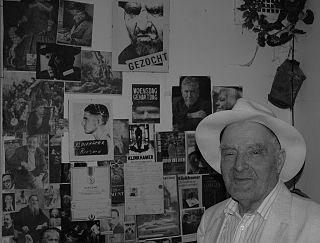 W
WRichard Klinkhamer was a Dutch murderer, who went on to write a book about how he could have committed the crime. In 2000, he was sentenced to seven years in prison for manslaughter after killing his wife and hiding her body.
 W
WThe Man Who Wrote Frankenstein is a 2007 book written and published by John Lauritsen, which promotes the fringe theory that the poet Percy Bysshe Shelley, not his wife Mary Shelley, is the real author of Frankenstein; or, The Modern Prometheus (1818). The book also argues that the novel "has consistently been underrated and misinterpreted", and that its dominant theme is "male love."
 W
WMelanie's Marvelous Measles is a self-published children's book written by Australian author and anti-vaccine activist Stephanie Messenger. Through its story, the book claims, contrary to scientific data, that contracting measles is beneficial to health, and that vaccines are ineffective.
 W
WMiss Silver's Past is a 1969 novel by Czech author Josef Škvorecký.
 W
W"On Frankenstein" is a review of the 1818 novel Frankenstein; or, The Modern Prometheus written by Percy Bysshe Shelley in 1817 but not published until 1832.
 W
WAnne Perry is an English author of historical detective fiction, best known for her Thomas Pitt and William Monk series. In 1954, at the age of fifteen, she was convicted in the murder of her friend's mother. She changed her name after serving a five-year sentence.
 W
WNorman Kingsley Mailer was an American novelist, journalist, essayist, playwright, activist, film-maker and actor. In a career spanning over six decades, Mailer had 11 best-selling books, at least one in each of the seven decades after World War II—more than any other post-war American writer.
 W
WThe quarrel of the Ancients and the Moderns began overtly as a literary and artistic debate that heated up in the early 17th century and shook the Académie française.
 W
WRage is a psychological thriller novel by American writer Stephen King, the first he published under the pseudonym Richard Bachman. It was first published in 1977 and then was collected in 1985 in the hardcover omnibus The Bachman Books. The novel describes a school shooting, and has been associated with actual high school shooting incidents in the 1980s and 1990s. In response King allowed the novel to fall out of print, and in 2013 he published a non-fiction, anti-firearms violence essay titled "Guns".
 W
WThe Shakespeare authorship question is the argument that someone other than William Shakespeare of Stratford-upon-Avon wrote the works attributed to him. Anti-Stratfordians—a collective term for adherents of the various alternative-authorship theories—believe that Shakespeare of Stratford was a front to shield the identity of the real author or authors, who for some reason—usually social rank, state security, or gender—did not want or could not accept public credit. Although the idea has attracted much public interest, all but a few Shakespeare scholars and literary historians consider it a fringe theory, and for the most part acknowledge it only to rebut or disparage the claims.
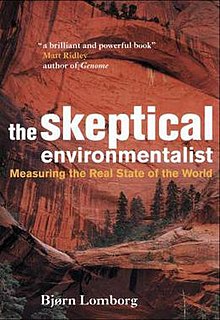 W
WThe Skeptical Environmentalist: Measuring the Real State of the World is a book by Danish environmentalist author Bjørn Lomborg, controversial for its claims that overpopulation, declining energy resources, deforestation, species loss, water shortages, certain aspects of global warming, and an assortment of other global environmental issues are unsupported by statistical analysis of the relevant data. It was first published in Danish in 1998, while the English edition was published as a work in environmental economics by Cambridge University Press in 2001.
 W
WThe Sorrows of Young Werther is a loosely autobiographical epistolary novel by Johann Wolfgang von Goethe. First published in 1774, it reappeared as a revised edition in 1787. It was one of the most important novels in the Sturm und Drang period in German literature, and influenced the later Romantic movement. Goethe, aged 24 at the time, finished Werther in five-and-a-half weeks of intensive writing in January–March 1774. The book's publication instantly placed the author among the foremost international literary celebrities, and was among the best known of his works.
 W
WThe Story of Colors is a children's book written by Subcomandante Marcos of the Zapatista Army of National Liberation. First published in 1996, it generated controversy after the National Endowment for the Arts canceled grant money for an illustrated bilingual edition in both Spanish and English. The Lannan Foundation stepped in with support after the NEA withdrew. The bilingual version was published in 1999, translated by Anne Bar Din with illustrations by Domitilia Dominguez.
 W
WSylvester and the Magic Pebble is a children's picture book written and illustrated by William Steig, and published in 1969.
 W
WThen It Fell Apart is a 2019 memoir by American electronica musician Moby. Moby had previously written a memoir called Porcelain: A Memoir, published in 2016, which covered his life pre-fame. Then It Fell Apart covers the subsequent decade from 1999 to 2009 when Moby released the album Play to acclaim and success.
 W
WTrue at First Light is a book by American novelist Ernest Hemingway about his 1953–54 East African safari with his fourth wife Mary, released posthumously in his centennial year in 1999. The book received mostly negative or lukewarm reviews from the popular press and sparked a literary controversy regarding how, and whether, an author's work should be reworked and published after his death. Unlike critics in the popular press, Hemingway scholars generally consider True at First Light to be complex and a worthy addition to his canon of later fiction.
 W
WThe Wasp Factory is the first novel by Scottish writer Iain Banks, published in 1984. Before the publication of The Wasp Factory, Banks had written several science fiction novels that had not been accepted for publication. Banks decided to try a more mainstream novel in the hopes that it would be more readily accepted, and wrote about a psychopathic teenager living on a remote Scottish island. According to Banks, this allowed him to treat the story as something resembling science fiction – the island could be envisaged as a planet, and Frank, the protagonist, almost as an alien. Following the success of The Wasp Factory, Banks began to write full-time.
 W
WWhile Europe Slept: How Radical Islam is Destroying the West from Within is a 2006 book by Bruce Bawer. It was Bawer's second book dealing with the issue of religious fundamentalism, following his earlier Stealing Jesus: How Fundamentalism Betrays Christianity, a critique of fundamentalist Christianity published in 1998.
 W
WSir Pelham Grenville Wodehouse, was an English author and one of the most widely read humorists of the 20th century. Born in Guildford, the third son of a British magistrate based in Hong Kong, Wodehouse spent happy teenage years at Dulwich College, to which he remained devoted all his life. After leaving school he was employed by a bank but disliked the work and turned to writing in his spare time. His early novels were mostly school stories, but he later switched to comic fiction, creating several regular characters who became familiar to the public over the years. They include the feather-brained Bertie Wooster and his sagacious valet, Jeeves; the immaculate and loquacious Psmith; Lord Emsworth and the Blandings Castle set; the Oldest Member, with stories about golf; and Mr Mulliner, with tall tales on subjects ranging from bibulous bishops to megalomaniac movie moguls.